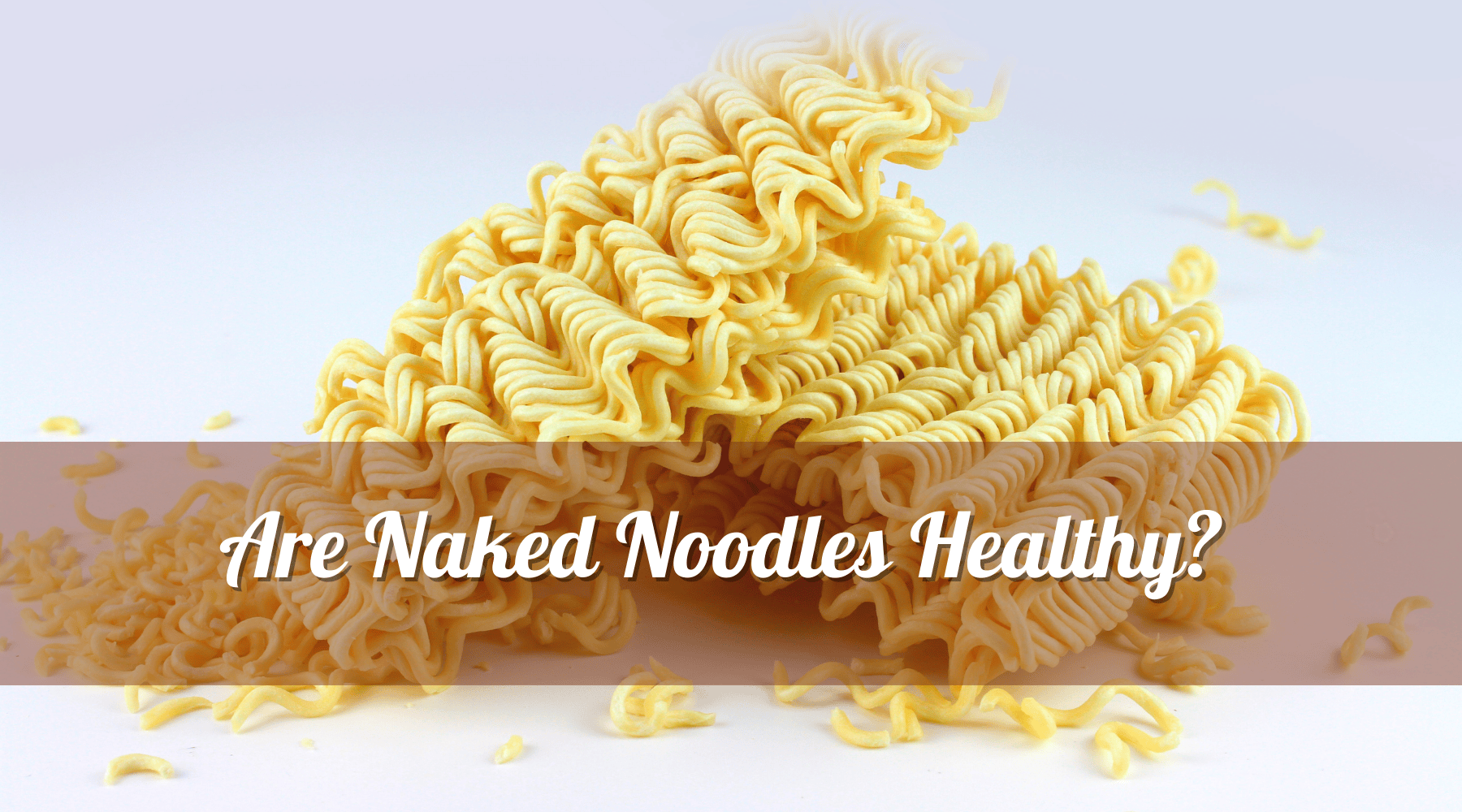
Are Naked Noodles Healthy? A Deep Dive into Convenience, Nutrition, and Gut Health
In today’s fast-paced world, convenience often comes out on top. Products like Naked Noodles have made their way into kitchens everywhere, offering a quick, tasty, and satisfying meal in a matter of minutes. But with a closer look, a question begins to stir: Are Naked Noodles healthy? Here, we’ll explore this question through two lenses—ease and convenience vs. nutritional science and gut health—offering a balanced perspective for those seeking convenience with an eye on their health.
The Convenience Factor: Why Naked Noodles Are So Popular
For many of us, Naked Noodles tick all the right boxes when it comes to convenience. They’re easy to prepare, low-cost, and portable—a perfect solution for busy individuals seeking a warm meal with minimal effort.
Quick, Easy, and Portable
There’s no hassle involved. All you need is hot water and a few minutes, and you have a bowl of noodles ready to enjoy. For anyone juggling a busy schedule, this simplicity is golden. You can bring a packet to work, enjoy it on a road trip, or simply have it as a quick option for late-night hunger pangs.
A Range of Flavors to Suit All Tastes
One of Naked Noodles’ selling points is its wide flavor variety—from Thai Sweet Chili to Singapore Curry. For anyone who enjoys a little variety, these noodles provide just that without requiring you to buy a bunch of exotic ingredients. Each cup is a flavor-packed experience, offering a shortcut to diverse flavors.
Are Naked Noodles Healthy? The Nutritional Perspective
While they’re an excellent option for convenience, the nutritional side of Naked Noodles is less straightforward. Let’s break down the key nutritional aspects to see where they shine—and where they fall short.
Calories, Carbs, and Protein
A serving of Naked Noodles typically falls between 300 and 350 calories. But those calories mainly come from refined carbohydrates, which don’t provide the lasting fullness that comes from more balanced meals. With only 5-7 grams of protein, they may not be satisfying enough to keep hunger at bay for long.
Sodium Content: A Red Flag?
One major drawback is sodium. With 800-1000 mg of sodium per serving, they cover nearly half the daily recommended intake. High sodium levels, especially when consumed regularly, can lead to hypertension and increase heart disease risk. However, cutting down on the seasoning packet may help reduce sodium intake, though it could impact the taste.
Lack of Nutrient Density
Naked Noodles contain minimal amounts of fiber, vitamins, and minerals essential for a well-balanced diet. Without added vegetables or protein, they’re more of a “filler” than a truly nutritious meal. For a healthier twist, adding fresh veggies or a lean protein can round out the nutritional profile.
Naked Noodles and Gut Health: A Closer Look
Beyond basic nutrition, let’s dive into how these noodles might impact gut health—an often-overlooked factor that can influence everything from mood to immunity.
Impact on Gut Bacteria
The gut is home to trillions of bacteria that play a vital role in digestion, immune response, and even mental health. The refined carbs and preservatives found in many instant noodle products, including Naked Noodles, can disrupt this balance. Over time, frequent consumption of refined carbohydrates may reduce the diversity of beneficial bacteria, which are crucial for optimal gut function. Without sufficient fiber or prebiotics, these noodles don’t provide the nourishment beneficial bacteria need to thrive, potentially impacting gut health if consumed often.
Serotonin and Mood Regulation
Interestingly, about 90% of serotonin—our "feel-good" neurotransmitter—is produced in the gut. A balanced gut microbiome supports serotonin production, which directly influences mood, sleep, and even appetite. However, a diet high in processed foods, low in fiber, and high in refined carbs—like that from regular consumption of products like Naked Noodles—may contribute to an imbalance in the gut. This imbalance could potentially reduce serotonin production, affecting mood and mental well-being over time.
Inflammation and Processed Ingredients
Processed foods with preservatives and additives, often used to improve flavor or shelf-life, may contribute to low-grade inflammation when consumed regularly. Chronic inflammation can affect immune health and is linked to various health issues, from heart disease to digestive concerns. Naked Noodles, with their reliance on flavor enhancers and refined ingredients, may not be ideal for those aiming to minimize inflammatory foods in their diet.
So, Are Naked Noodles Healthy?
The answer, as you might expect, depends on what you’re prioritizing. For convenience, Naked Noodles are a winner. They’re quick, flavorful, and easy to prepare. But if you’re focused on nutritional value and gut health, they may not be the best option as a daily staple.
A Balanced Perspective on Convenience
Naked Noodles are perfect for those moments when you’re too tired to cook or need a quick meal on the go. They’re affordable and bring unique flavors to the table. However, their lack of fiber, vitamins, and minerals means they shouldn’t be seen as a go-to for balanced meals.
A Cautionary Take on Health
From a nutritional and gut health standpoint, Naked Noodles leave a bit to be desired. They’re high in sodium, low in fiber and protein, and contain ingredients that, over time, may not support a healthy gut microbiome or reduce inflammation. For those looking to maintain balanced gut health, consider enjoying Naked Noodles occasionally, supplementing them with fresh vegetables and protein to make them more filling and nutrient-rich.
Conclusion: The Final Noodle on the Plate
Are Naked Noodles healthy? While they’re certainly convenient, they’re better treated as an occasional indulgence rather than a diet staple. For a healthier approach, try using them as a base and add your favorite vegetables or lean proteins. Moderation is key—balancing convenience with nutrient-dense foods can help you enjoy the ease of Naked Noodles without compromising on health.
So next time you reach for a cup, remember it’s okay to enjoy, but balance it out with nutritious, whole foods that will keep both your body and gut happy.



